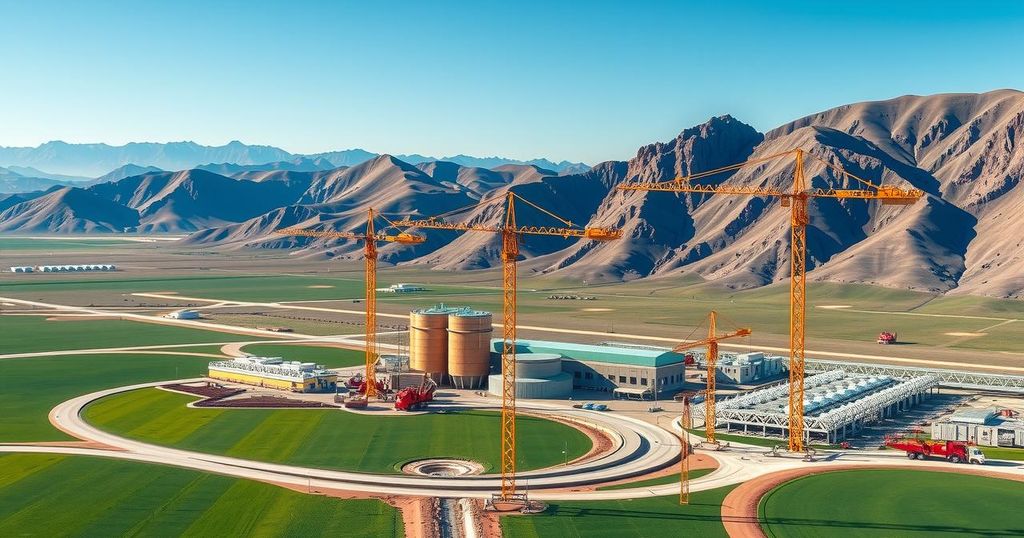Mongolia is focusing on megaprojects to enhance its economy by processing raw materials locally, aiming for increased GDP and global supply chain participation. The government has prioritized 14 major initiatives, including mineral processing and infrastructure projects, and secured foreign investments to fund these endeavors. Skepticism remains about the implications of this focus on mining and foreign debt.
Mongolia is focusing on megaprojects to expand its economy, particularly in the mining sector. Trucks in the Gobi Desert transport coal and copper to China, but leaders express a desire to process more raw materials within Mongolia. This initiative is aimed at addressing public demand for better economic conditions and job opportunities. According to Bulgantuya Khurelbaatar, deputy speaker of the parliament, significant megaprojects are essential for uplifting livelihoods.
Prime Minister Oyun-Erdene Luvsannamsrai envisions facilities that produce refined materials, potentially enabling Mongolia to play a significant role in global supply chains. Challenges remain, particularly in securing billions in foreign investment and dealing with sustainability concerns related to Mongolia’s natural environment and culture. However, officials argue that these projects are vital for achieving an increase in per capita GDP.
The government has introduced 14 major projects, including mineral processing centers, water diversion, dams, and power plants. Two initiatives have advanced: a uranium mine in Dornogovi, developed with France, and a coal cross-border rail line established with China. Projects like a coal-fired power station and various transport links further aim to bolster the mining sector.
The government’s 2024-2028 action plan prioritizes these projects, facilitated by a coalition with the Democratic Party, which aids in overcoming parliamentary opposition. Concerns regarding environmental impacts, particularly from river damming and water diversion, are being reiterated, with a focus on ensuring sustainability and consultation with neighboring countries.
Funding for projects will largely come from foreign investments. The uranium mine will be financed by Orano of France, while the hydropower plant will be funded by Chinese investors. Previous collaborations with foreign companies have had mixed outcomes, thus the government is eager to demonstrate a commitment to stable investment practices.
The initiative faces skepticism from parts of the public and some politicians who prefer a diversified economy. Concerns about reliance on the mining sector and potential risks from increased foreign debt are prevalent. Jargalan Batbayar, a Democratic Party MP, cautions against focusing too heavily on mining, suggesting that some projects may not yield viable economic returns. Despite differing opinions, officials remain steadfast in pursuing megaprojects as crucial elements for national progress.
Mongolia is embarking on significant megaproject initiatives aimed at economic growth through processing raw materials domestically. While challenges in funding and sustainability exist, the government is focused on attracting foreign investment and improving infrastructure. Concerns from the public and political figures highlight the need for careful planning and diversification of the economy to ensure long-term viability and public support.
Original Source: www.bne.eu






